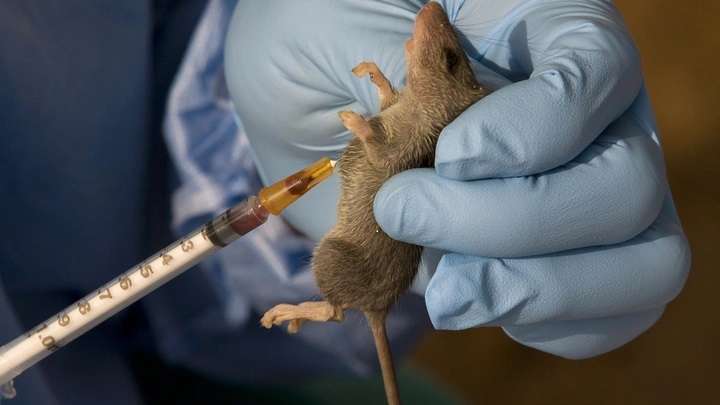Bono East Director of health, Dr Fred Adomako Boateng, has called for prompt detection and treatment of Lassa fever in the country, following the confirmation of two cases by the Ghana Health Service.
According to him, although only 1% of persons confirmed with Lassa fever die, and is a “good prognosis”, it must be effectively managed and addressed. He revealed that because the virus presents itself as a “simple malaria”, people tend to trivialize its impact on their health.
“… Early and prompt initiation of treatment is very important… So, in terms of case fatality, Lassa fever is not as deadly as Ebola but we have to admit that if we get to the severer forms, then it means that the likelihood of survival is slim.”
Dr Fred Adomako Boateng
Dr Boateng iterated that it is very important that victims of the virus commence the treatment as early as possible because if they wait till the latter stage, the case fatality is really high. With this, he noted that specific treatment are used to curtail the impact of Lassa fever on people.
“We use antivirus and it’s most effective when initiated at the beginning of people having signs and symptoms.”
Dr Fred Adomako Boateng
Commenting on the mode of transmission of the virus, Dr Boateng stated that one can get it when he comes into contact with the faeces and urine of an infected rat, which is the primary carrier of the virus. He highlighted that Lassa fever is endemic in some African countries such as Nigeria and Sierra Leone.
Causes of Lassa virus
The Bono East director of health noted that countries like Ghana for instance only experiences sporadic appearances of the fever as it recorded some cases in 2011 in the Ashanti region. He stated that laxity in ensuring hygiene, among other factors could lead to people contracting the fever.
“If you’re in your house and you don’t cover your food well or in an environment where we don’t have proper waste disposal, then it means that we are going to give access to the rats… As we begin to encroach on the ecosystem where the animals are living, then we’re also going to share their diseases and this is what we call the one health concept…”
Dr Fred Adomako Boateng
The symptoms of Lassa fever, Dr Boateng underscored, include fever, general malaise, unwellness and as it progresses, headache, sore throat and cough breaks out. He stated that hemorrhage is the most severe of symptoms a patient can have.

Dr Boateng again expressed worry over the fact that a number of diseases presents itself like the Lassa fever and emphasized the need for the public to be cautious.
Subsequently, he urged the public to be cautious as the virus can equally be transmitted between humans. He explained that “it’s a bad evil” in terms of the human transmission element as it can spread when one comes into contact with infected body fluids.
“You don’t get it by casual direct contacts… So, when people are vomiting in healthcare facilities, having loose stools, you’re going to do a procedure that will put you at risk in coming in contact with those body fluids, then there’s a risk. You don’t even get it from a person unless the person begins to show signs and symptoms of Lassa fever.”
Dr Fred Adomako Boateng
It will be recalled that the Ghana Health Service on February 24, 2023, confirmed two Lassa fever cases in Accra from Noguchi Memorial Institute. So far, 56 contacts have been identified.
According to the World Health Organisation, Lassa fever is an acute viral hemorrhagic illness caused by Lassa virus, a member of the arenavirus family of viruses. It stated that humans usually become infected with Lassa virus through exposure to food or household items contaminated with urine or faeces of infected Mastomys rats.
READ ALSO: NUGS Demands Financial Sustainability Plan For Students Loan Disbursement To Avert Delays





















